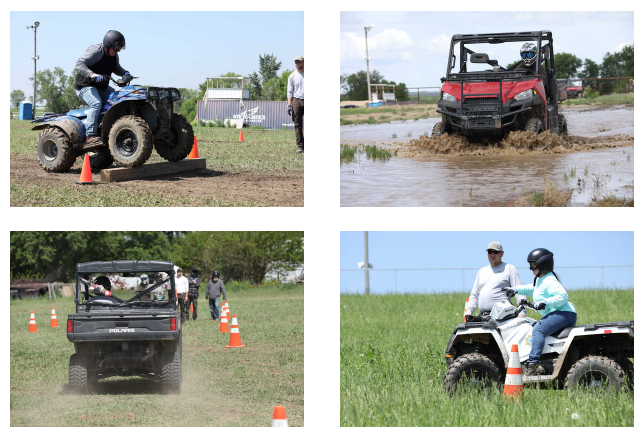
While getting stung by a bee is painful, for some people with high sensitivity, these exposures can be life threatening. Claims involving anaphylactic shock caused by insect stings occur every year. Usually, employees in parks and conservation, public works and utilities are affected the most. However, lifeguards also suffer a significant number of insect stings each summer as well.
To address potential problems, it’s important to develop a plan on how to provide care to those who may be affected. The plan should include training for all staff on how to identify serious reactions. Allergic reactions to bee stings can occur within minutes to several hours after the sting. The most severe reaction can occur within 30 minutes of exposure to an allergen. Symptoms include: Hives, difficulty breathing and swallowing, dizziness, fainting, nausea, vomiting, unconsciousness, and cardiac arrest. If anyone displays these reactions you should call 911 immediately. If the employee is aware they are allergic to stings and they have been prescribed an emergency epinephrine autoinjector (EpiPen, Auvi-Q, others), have them use it right away as their doctor directed. Knowing where a person stores their autoinjector and how to help them administer it is good to know if the employee wishes to share that medical information.
When dealing with poisonous plants, allergic reactions are usually not life-threatening but can be quite painful. However, there are instances where an individual may inhale smoke while burning brush containing poison ivy, leading to serious symptoms such as difficulty breathing and swallowing, dizziness, fainting, and severe nausea. In such cases, it is important to call 911 immediately.
Pyrotechnical Training for Firefighters

Just a reminder that if your fire department handles and detonates fireworks it needs to be under the supervision of a certified pyrotechnical display operator.
As budgets for fireworks shrink, more fire departments are tasked with taking over the pyrotechnical display. Failure to correctly store, handle and detonate the fireworks can result in catastrophic injuries and property damage.
If you have had prior certification training, ensure your certification is still valid and the lead operator conducts pre-display orientation training with everyone involved. If you don’t have a certified operator, we highly recommend contracting with one.
For questions on certification contact the Pyrotechnical Guild International at https://pgi.org/.
Member Highlight: Humboldt County

Ben Loots, County Engineer and Safety Coordinator for Humboldt County provided some insight on what they have been doing to develop and maintain their safety culture.
What is your county doing to provide a safe workplace?
We started a safety committee in July of 2022 after a couple of conversations with IMWCA. We started out meeting monthly until we had established a designated health provider, a temporary return to work (RTW) policy and agreements, incident review forms and employer and employee investigation reports. After about 12-18 months we switched our meetings to every two months and now meet quarterly. We’re still actively discussing safety items in between meetings.
Who is involved in your safety meetings?
Our committee is comprised of the chairman and vice chairman of the Board of Supervisors and a representative of every county department. Our meetings are structured yet informal, we follow an agenda and send out meeting minutes to those on the committee, it is their responsibility to disperse the information to their departments.
What are your safety committee’s goals?
Our short-term goal is to make it to the next meeting without any employee injuries or incidents to review. Long-term goals include overall employee health and situational awareness of potential hazards. Mod factor reductions are definitely a long term tangible goal as well.
What words of wisdom do you have for other members of IMWCA to help them develop their safety culture.
It always felt like a daunting task to create a safety committee and implement new policies, but with the help of Bill Dickey from IMWCA the process has been really easy. When we started the group we had one of the higher Mod factors in the IMWCA group, since implementation of RTW and other policies we’ve become one of their lowest. That savings is something tangible that the entire county can see, the downtime and money we’ve saved in Work Comp claims is being reinvested into our community.
Pottawattamie County Holds UTV Training

As more local governments begin to use utility terrain vehicles (UTVs) for a variety of tasks, unfortunately, the number of injuries related to their use has also risen. Several of those incidents are due to untrained operators either having the vehicle do something it’s not designed to do or improperly do a task. To address these issues, Pottawattamie County engaged the Off-Road Vehicle Association to conduct Train-the-Trainer instruction for members of the Sheriff’s Office and Conservation departments for UTVs and ATVs. IMWCA’s Implementation Grant paid for the four-day on-site course. The course provided training for six instructors. Those instructors are now able to provide basic ATV and UTV training for other operators.
“We had an excellent experience working with RHOVA and the ATV Safety Institute. Both organizations provided us with valuable information for site selection, required course equipment, and knowledge of safe operation. Each class provided a high-challenge/low-risk environment that focused on improving operator experience and safety. On the final day of class, the newly trained Driver Coaches taught the Basic Driver class to students under the supervision of a Chief Instructor. This reinforced the skills and objectives Coaches learned during the previous three days and provided an opportunity to practice our coaching abilities”. Jacob Head, Pottawattamie County Safety
“I have acquired knowledge of the capabilities and limitations of UTVs and ATVs. I appreciated the in-depth information about employing proper PPE and conducting a pre-trip inspection (T-CLOC). I also valued gaining a better understanding of side-hilling and two-foot break and throttle techniques”. Jacob Head
IMWCA will assess Pottawattamie County’s overall experience with this training to determine if IMWCA will make more grant money available for other members to utilize this training.




